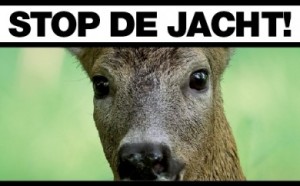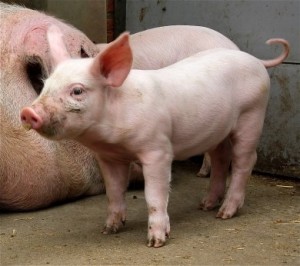Weltlog Woche 46 – 2014
Ja! Wir werden im März 2015 in 10 Provinzen an der Provinzkabinettwahl teilnehmen. Es gibt in den Niederlanden insgesamt 12 Provinzen und ich bin sehr stolz darauf, dass wir in 10 Provinzen gute Kandidaten gefunden haben, die sich dem Abenteuer stellen werden, um für Tier, Natur und Umwelt aufzukommen. Ebenso sind für acht Wasserverbände (das niederländische Verwaltungsorgan zur Verteidigung des Landes gegen Wasser)Kandidatenlisten aufgestellt worden. Beide Wahlen finden am gleichen Tag statt.
Seit den Wahlen im Jahr 2011 ist unsere Partei in sieben Provinzen durch einen Abgeordneten vertreten. Wir setzen uns dafür ein, in 10 Provinzen vertreten zu sein! Selbstverständlich hoffen wir auch, die Anzahl der Abgeordneten zu erhöhen. Laut Umfragen haben wir gute Chancen.
Es ist wichtig, dass wir an diesen Wahlen teilnehmen, da viele Beschlüsse in den Provinzen direkten Einfluss auf Tier, Natur und Umwelt haben. Wichtige regionale Themen sind für uns zum Beispiel die Vergnügungsjagd , Naturschutz und Megaställe.
Außerdem wird augenblicklich an einer Gesetzesänderung in den Niederlanden gearbeitet, die das Los von 2 Millionen Tieren, die jährlich im Kreuzfeuer von Hobbyjägern liegen, vollkommen in die Hände der Provinzregierung abgibt. Der Schutz der Fauna ist den Provinzen bislang alles andere als tierfreundlich gewesen. Eine starke Partei für die Tiere kann dies beenden!
Die Kandidatenlisten und das Wahlprogramm liegt zur Genehmigung beim Kongress, welcher am 30. November stattfinden wird.
Endlich ein Ende vom Kupieren der Ferkelschwänze! J Die Bundestagsmehrheit hat unseren Antrag hierzu unterstützt. Wir fordern von der Regierung ein definitives Datum, ab wann das Kupieren von Ferkelschwänzen verboten wird.
Schweine dürfen dann glücklicherweise ihren Ringelschwanz behalten und werden endlich von dem schmerzhaften Abschneiden desselben erlöst werden.
Das Abschneiden der Schweineschwänze ist bereits seit 1996 in den Niederlanden verboten, dieses Verbot kann allerdings umgangen werden, wenn das sogenannte Schwanzkauen nachgewiesen werden kann. Augenblicklich wird das Verbot massenhaft aufgrund einer „generischen Suspension“ umgangen. Ferkel leben in überfüllten Schweineställen, unter schlechten klimatischen Bedingungen und ohne Abwechslung. Das bedeutet Stress und je größer die Langeweile, desto mehr Schwanzkauen als Folgeerscheinung.
Das heutige Kabinett wollte es der Viehindustrie selbst überlassen, ab welchem Datum das Schwanzkupieren verboten werden soll. Gott sei Dank konnten wir das abwenden.
Und noch weitere Erfolgsmeldungen diese Woche, unser Antrag zum Weidegang für alle Kühe in den Niederlanden ist angenommen.
Auch der Antrag für ein nachhaltiges Bildungswesen ist angenommen. Die Bundestagsmehrheit ist der Meinung, dass Bildung für nachhaltige Entwicklung notwendig ist, um einen lebbaren Planeten und eine grüne Ökonomie zu ermöglichen. Es wird nun untersucht, wie Nachhaltigkeit ein integraler Baustein im Unterricht werden kann.
Letztes Wochenende fand eine Zusammenkunft der Animal Politics Foundation ( die internationale Stiftung unserer Partei) in Belgrad (Serbien) für weltweit alle Parteien für die Tiere statt, um the best practices auszutauschen für eine erfolgreiche animal rights party. Ich berichte Ihnen mehr darüber im nächsten Weltblog.
Bis dahin verbleibe ich mit herzlichen Grüßen,
Marianne
Yes! In March 2015, we will participate in the provincial council elections in 10 provinces. The Netherlands has 12 provinces in total and I am proud that we have found good candidates in 10 of them, who dare to take up the challenge to stand up for animals, nature and the environment. And we have also drawn up lists of candidates for eight Water Authorities (Dutch administrative body for water management). Both elections take place on the same day.
Since the elections of 2011, our Party has had a seat in seven provincial councils. And of course, we are now going for ten of them! Obviously we also hope to increase our number of representatives per province. Looking at the polls, there’s a good chance that we will.
It’s very important to us to participate in these elections because much decision-making in the provinces immediately affects animals, nature and the environment. For example, pleasure hunting, nature conservation and mega-stalls are important regional topics to us.
Furthermore, there will be an amendment to the law in the Netherlands, which will put the fate of two million animals that are annually threatened by amateur hunters, into the hands of the provinces. The fauna policy of provinces has been far from animal-friendly until now. A powerful Party for the Animals can put a stop to that!
The lists of candidates and the election programme are at the approval of the Congress on 30 November next.
Finally a stop to the docking of piglets’ tails! 😉 A majority of the House of Representatives has seconded our motion on this. We want the government to set a final date to stop the docking of piglets’ tails for good. Pigs will fortunately then be allowed to keep their crumpled tail and are saved from painful tail docking.
The docking of pigs’ tail has been banned in the Netherlands since 1996, but this prohibition may be deviated from when pigs bite off each other’s tails. Currently, this prohibition is massively deviated from on the basis of a “general release”. Piglets have to live in overcrowded pens, in a bad climate and without distraction. This causes distress to them and makes them bored, which results in biting off each other’s tails.
This Parliament wanted to leave it up to the livestock industry to decide when to start respecting the prohibition on the docking of tails. Fortunately there now is a big stick, which is certainly needed right now.
And more successes this week; our motion has been adopted to regulate pasturing for all cows in the Netherlands.
Also our motion for sustainable education was seconded. A large majority of the House of Representatives finds it necessary that attention is paid to animals, nature and the environment to reach a habitable planet and a green economy! Research is now conducted into how sustainability can become an integral part of education.
Last week, the Animals Politics Foundation (the international foundation of our Party) held a gathering in Belgrade (Serbia) for all parties for the animals worldwide so that they could exchange best practices in order to become successful animal rights parties. I will tell you more about this in next week’s Worldlog!
Greetings, Marianne


